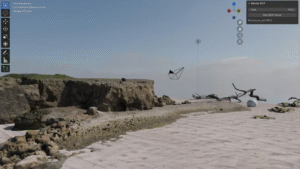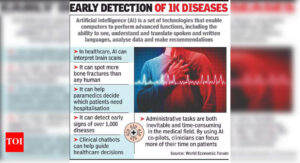Artificial Intelligence Revolutionizes Leadership Selection at the University of Puerto Rico
A Historic Shift in Candidate Evaluation
For the first time in history, the University of Puerto Rico (UPR) has integrated artificial intelligence (AI) tools into its evaluation process for presidential candidates. This groundbreaking approach aims to provide a structured, objective, and fair analysis of candidates’ work plans. While AI does not replace human judgment, it complements it, enabling more informed decision-making in complex scenarios.
The Role of Certification 91
The UPR governing board’s Certification 91 (2024–2025) lays the foundation for this innovative evaluation framework. It introduces a comprehensive rubric composed of 39 criteria that cover essential areas such as Academic-Administrative Leadership, Interpersonal Skills and Conflict Management, Financial Administration, and Student Affairs. This systematic application requires a rigorous evaluation, which AI is adept at streamlining.
AI Tools in Action
The evaluation utilized advanced platforms, including ChatGPT (OpenAI), Gemini (Google), Copilot (Microsoft), and DeepSeek. These tools analyzed the work plans submitted by the eight finalists, revealing significant differences in candidates’ adherence to the established criteria.
Top Candidates Shine Through AI Evaluation
Among the candidates, Mayra Olavarría Cruz and Héctor Ríos Maury emerged with the highest scores. Their proposals were not only comprehensive but also closely aligned with the institution’s objectives. Notably, Ríos Maury achieved an impressive 100% compliance, presenting a plan that included 32 strategic vectors, timelines, and performance indicators. Olavarría Cruz closely followed with a 96.52% score, showcasing her humanistic and practical approach to addressing multiple rubric aspects.
Diversity in Perspectives: The Other Candidates
In contrast, several other candidates scored lower: Edwin Barea Rodríguez (78.24%), Angélica Varela Llavona (75.32%), Zayira Jordán Conde (68.53%), and Wilma Santiago (62.49%). Additionally, Walleska de Jesús Bonilla and Dr. Agustín Rullán Toro received scores of 61.34% and 60.57%, respectively. While these scores reflect a diversity of perspectives, they also indicate potential gaps in understanding the university environment or the presidential role itself.
The Evaluation Process Explained
The evaluation adhered to the official rubric, employing a scoring scale from 0 to 4 points for each criterion. These scores were then converted into compliance percentages, allowing for a standardized comparison of each candidate’s plan. To ensure the validity of the results, comparisons were made across various AI platforms, leading to a robust analysis.
Reliability Through Consistency
The evaluative consistency among ChatGPT, Gemini, Copilot, and DeepSeek added credibility to the findings. This collaborative effort underscored the superior quality of proposals from Ríos Maury and Olavarría Cruz, reinforcing the role of AI in achieving a reliable evaluation process.
The Need for Objectivity and Precision
This initiative exemplifies how clear criteria and advanced technology can yield more objective decisions. Given the significant fiscal, demographic, and academic challenges facing UPR, there is little room for improvisation. The university requires a leadership that embodies strategic vision, executive capacity, and an in-depth understanding of the system. Here, AI emerges as not just beneficial but essential.
AI: An Ally in Future Leadership Selection
The integration of AI in evaluating presidential candidates at UPR marks a significant step toward embracing technology in academic governance. This approach not only enhances objectivity but also paves the way for future improvements in leadership selection processes across educational institutions.
The Future of UPR: A Call for Strong Leadership
As UPR navigates through its challenges, the need for effective leadership is paramount. The role of AI in this process cannot be overstated; it provides the analytical power that human evaluators may lack when confronted with complex data sets. Leadership that combines strategic foresight, operational efficiency, and a profound understanding of the academic landscape is critical for steering UPR toward a prosperous future.
A Reflective Look at the Evaluation Process
The evaluation’s findings prompt a reflective consideration of the candidates’ proposals and their relevance to the university’s core mission. As the academic landscape continues to evolve, candidates must be equipped with the knowledge and skills to address contemporary challenges.
The Importance of Comprehensive Proposals
The variable quality of some proposals indicates a potential gap in candidates’ familiarity with UPR’s environment. The brevity of certain submissions raises questions about their operational viability, suggesting that thorough research and understanding of the institution are crucial for future candidates.
Enhancing the Evaluation Framework
To further refine the evaluation process, future iterations could include broader criteria, ensuring that candidates address not only academic goals but also community engagement and innovation. Engaging stakeholders in discussions about these criteria can lead to a more holistic approach to leadership selection.
Balancing Tradition with Innovation
While embracing AI’s capabilities, it is essential to maintain a balance between traditional evaluation methods and innovative technology. Human insight remains invaluable, and a collaborative approach that combines both can yield the best outcomes for UPR.
The Role of Faculty and Administrators
Faculty members and administrators play a vital role in guiding candidates throughout the evaluation process. Their insights can help shape proposals that resonate with the university’s mission and values, enhancing the overall quality of submissions.
A Call for Continuous Improvement
As UPR continues to evolve, a culture of continuous improvement must be fostered. Regular assessments of the evaluation process will ensure that it remains relevant and effective in identifying the best candidates for leadership roles.
The Importance of Community Feedback
Engaging the community in the evaluation process can enhance transparency and accountability. Feedback from students, faculty, and alumni can provide valuable insights, ensuring that the chosen leader reflects the needs and aspirations of the entire university community.
Conclusion: Embracing a New Era of Evaluation
The integration of AI in the presidential candidate evaluation at the University of Puerto Rico marks a transformative moment in academic governance. By leveraging technology, UPR is taking significant steps toward fostering a more objective and informed selection process. As the university faces unprecedented challenges, the need for strong, visionary leadership has never been clearer. This innovative approach not only enhances the evaluation process but sets a precedent for other institutions to follow.








